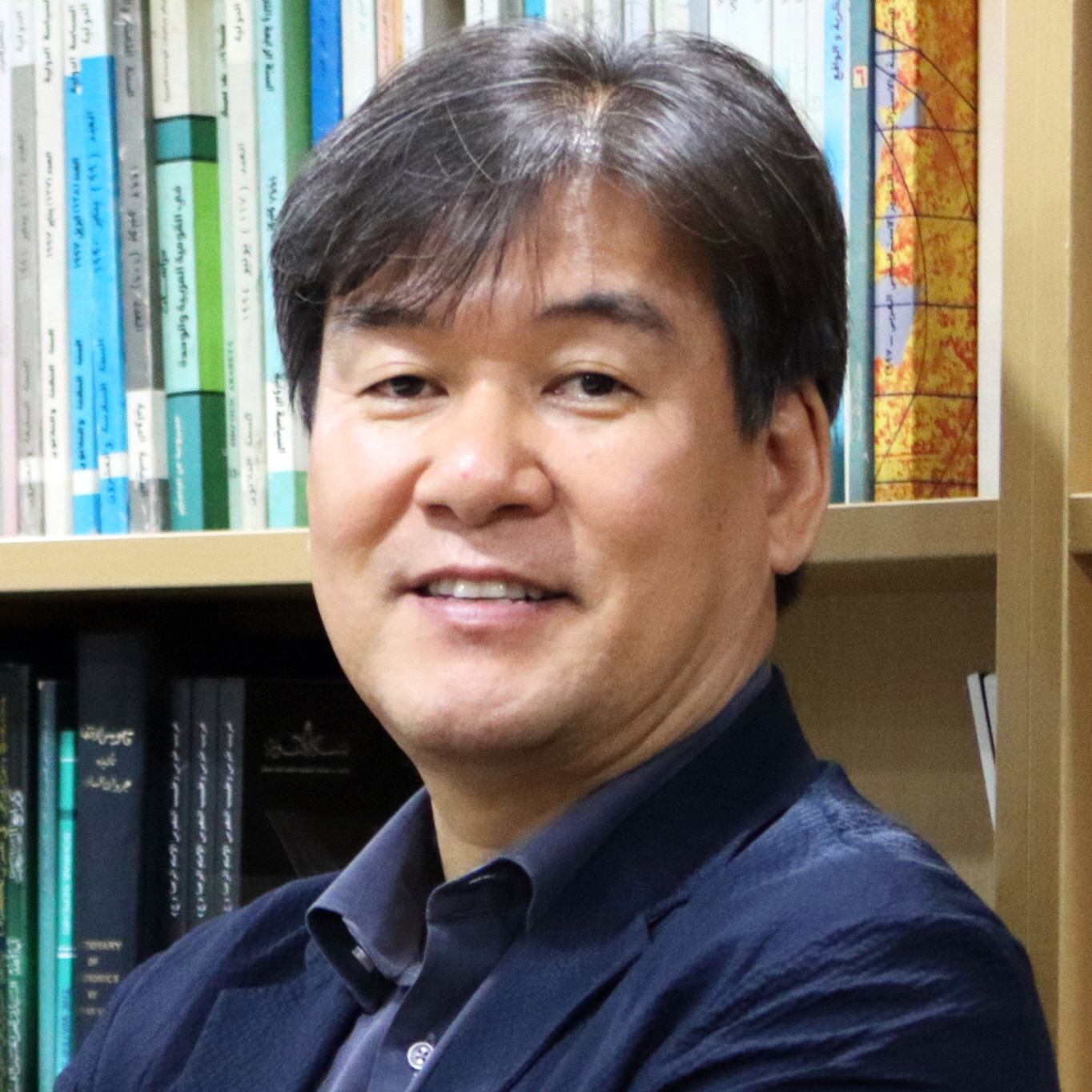Ebrahim Raisi, a conservative hard-liner, was elected the 13th president of Iran on June 18, 2021. As a large number of popular moderate candidates were eliminated from the qualification screening by the Guardian Council, which was dominated by the conservatives, the urban middle class, the young generation, and women constituency who supported them refused to vote. The disappointment of the low-income class towards the moderate President Hasan Rouhani and Foreign Minister Mohammad Javad Zarif led to Raisi’s victory. Despite the lowest ever voter turnout and a high number of invalid and lost votes, Raisi’s victory may have also paved the way for him to become Iran’s next supreme leader. The authoritarian electoral system of the Islamic Republic of Iran is expected to become more rigid, and its foreign policy will become more radical.
Iran’s new hardline administration, which took office on August 5, has declared that it will not engage in dialogue within the existing framework of negotiations on the restoration of the Iran nuclear agreement known as the Joint Comprehensive Plan of Action (JCPOA). Raisi and hard-liners criticized the contents of the latest nuclear deal brought by negotiator Abbas Araghchi of the moderate faction for not containing the guidelines enacted by the country’s parliament into law.
Meanwhile, Israel’s new coalition government, which took office on June 14, has focused on restoring relations with the U.S. Biden administration, unlike the previous Benjamin Netanyahu government, and the Biden government is also coordinating with Israel. Israel will focus on deterrence by conducting military operations against Iranian hard-liners and the regional proxy organizations they support. Accordingly, the United Arab Emirates (UAE) and Saudi Arabia will actively utilize the Sunni Gulf State-Israel strategic alliance that was formed after the Abraham Accords in September 2020 to strengthen security cooperation.
The 13th Iranian Presidential Election: Deepening Electoral Authoritarianism and the Election of Hard-liner Raisi
Raisi won the presidential election with an overwhelming 61.9% of the vote. However, the turnout was 48.8%, the lowest since the establishment of the Islamic Republic of Iran in 1979. This was 25% lower than the 73% turnout in the 2017 presidential election, when Hassan Rouhani was re-elected. The new president and conservatives attributed the low turnout to COVID-19, seemingly conscious of their weak legitimacy. But more serious than the low turnout was the invalidation of 3,726,870 votes. This was 300,000 more votes than the 3,412,712 votes received by second-placed former Islamic Revolutionary Guard Corps (IRGC) Commander candidate Mohsen Rezaee. In 2017, only 3% of votes were invalidated, but the number of invalid votes this year was 13%. Among the presidential candidates, former central bank president Abdolnaser Hemmati, considered a reformist, received only 8.3% of votes.
Ebrahim Raisi was born in 1960 in the holy city of Mashhad, Khorasan Province, in northeastern Iran. The city had emerged as an electoral stronghold for the conservative ruling coalition since 1989 when Ayatollah Khamenei, also from Mashhad, became supreme leader. From an impoverished background, Raisi was a devout theology student who became a prosecutor. As a loyal protégé of Khamenei, he was appointed by Khamenei as the head of the Imam Reza Foundation, Iran’s premier religious foundation (bonyard) located in Mashhad, before the 2017 presidential election, and also appointed by him as head of the judiciary after losing the election. The U.S. government placed Raisi on the list of persons subject to sanctions in 2019 in accordance with Executive Order 13876, which sanctions those appointed by Iran’s supreme leader to public office. Raisi was one of five judges in the so-called “Death Committee” who sentenced political prisoners to death in 1988.
The Guardian Council rejected 99% of candidates who applied to run for the June 18 presidential election citing reasons such as age, education level, and experience level in the qualification screening that began on May 16. A total of 585 candidates, including all 40 female candidates, were declared ineligible. Ultimately, only seven candidates passed the qualification screening, all of whom lacked the support base to compete against Raisi.
In a surprise decision that shocked most expectations, Ali Larijani, the moderative conservative former National Assembly Speaker, was also disqualified from running in the election.. The conservative ruling coalition showed a strong will not to tolerate any factors that could hinder Raisi’s victory. Not surprisingly, the election was not a contest between policy and vision. Raisi’s campaign promises mostly criticized the economic failures of the moderate government, but it was difficult to find anything related to the restoration of the nuclear agreement or other foreign policy issues.
Political Helplessness among Moderates and Hope for the Next Supreme Leadership by Hard-Liners
After the election, moderate politicians as well as their traditional supporters fell into a sense of political helplessness. White House National Security Adviser Jake Sullivan said that the presidential election will not have a significant impact on the restoration process of the Iran nuclear deal that began in Vienna, Austria, in April 2021, because the final decision maker on Iran’s foreign policy is not the president, but Khamenei. However, only the moderate factions can improve Iran’s overall problems, including the economic crisis caused by expansionist foreign policy, inefficient economic policy, structural corruption, and iron fist rule. Although the powers of the elected president and parliament are too weak, their very existence act as a check and pressure on hard-liners.
Rather than making Iran a normal state by easing sanctions, the Iranian hard-liners of the conservative ruling coalition have been focusing on exporting the Islamic Revolution throughout the region and fostering proxy organizations, such as Hezbollah in Lebanon, pro-Iranian militias in Syria, the People’s Mobilization Army including Kataib Hezbollah in Iraq, the Houthi rebels in Yemen, and Hamas in the Gaza Strip with an anti-U.S. slogan. In addition, this conservative ruling coalition has advocated for a resistance economy centered on domestic demand rather than opening up and privatization. Although the Iranian economy is being crippled by COVID-19 and U.S. sanctions, the economic system of the conservative ruling coalition is still strong thanks to its charity-based welfare foundations.
Furthermore, Iranian leadership politics is entering a crucial phase. Ayatollah Khamenei is elderly and is battling cancer. Just as Khamenei had been president at the time of Khomeini’s death in 1989, it is widely regarded that presidential experience will be advantageous in the selection of Iran’s next supreme leader. In this sense, Raisi appears to be laying the groundwork for future ambitions. Moreover, various media outlets are already referring to Raisi as an ayatollah, highlighting his ability as a religious leader.
Meanwhile, there are views that Khamenei’s second son Mojtaba Khamenei has the potential to succeed his father as the supreme leader. Mojtaba Khamenei is believed to be involved in helping much of the current supreme leader’s work. However, some have voiced concerns on that hereditary succession runs counter to the Iranian Revolution which overthrew a hereditary monarchy. Regardless, Raisi and Mojtaba have maintained a close friendship and the direction of cooperation between these two people will be of utmost interest.
The Middle East After Iran’s Hard-line President
The Vienna nuclear talks, which have been held six times since April 2021, came to a stall after the election of Raisi as president. In the six rounds of negotiations, Iran wanted the maximum possible lifting of sanctions, and the U.S. wanted the least restrictive conditions for it rejoining the agreement. During the transition to the new Iranian government, the Iranian judiciary issued an overseas travel ban for all members of the Rouhani administration and launched an investigation into corruption. Iran’s hard-liners seemed likely to accept the U.S. nuclear deal restoration plan to escape the severe economic crisis caused by the Trump administration’s sanctions. But Iran is now insisting on the substantial lifting of U.S. sanctions and mentioning 90% enrichment of uranium. However, even the loyal supporters of the hard-liners in the low-income segments of society have been suffering from the economic crisis, which is adding burdens on the conservative ruling coalition.
Meanwhile, Israel’s new coalition government insists that the restoration of the Iranian nuclear deal will further accelerate the expansionist behavior of the hardliners in Iran. The UAE and Saudi Arabia are also concerned about the strengthening of Iranian hard-liners’ influence in the region. Israel will continue to focus on deterring the Iranian hard-liners by conducting military operations against the IRGC and its regional proxies, and the UAE and Saudi Arabia will actively cooperate with Israel in this regard.
The views expressed herein do not necessarily reflect the views of the Asan Institute for Policy Studies.
This article is an English Summary of Asan Issue Brief (2021-24).
(‘2021년 이란 대선 분석과 향후 중동 정세 변화 전망’, http://www.asaninst.org/?p=81004)

 Facebook
Facebook Twitter
Twitter
